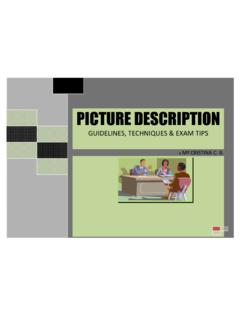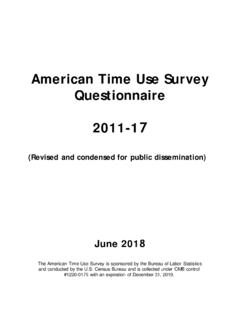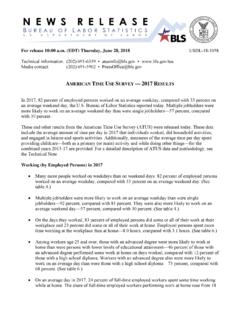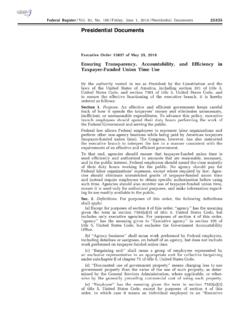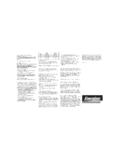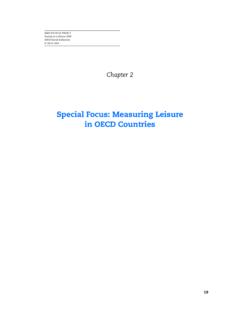Transcription of TENSES FORMS USE TIME - ENGLISHCENTER
1 TENSES FORMS (Affirmative - A/Negative - N Question - Q) USE time PHRASES INDEFINITE (SIMPLE) PRESENT A: I work. He/she/it works. You/we/they work. N: I do not (don t) work.
2 He/she/it does not (doesn t) work_. You/we/they do not (don t) work. Q: Do I work? Does he/she/it work_? Do you/we/they work? 1-to talk about general truth and permanent actions(facts): The Earth rotates round its axis. It rains a lot in autumn. I speak English and French. 2-to talk about repeated, customary actions: He gets up at 8 o clock every morning.
3 They never listen to their teacher. 3-to talk about a planned future action (a timetable or schedule ) The train leaves at 3 tomorrow. always, every day/month/yearnever, often, normally, seldom, sometimes, usually, twice a , all the time PAST A: I worked /went. He/she/it worked/went.
4 You/we/they worked/went . N: I did not (didn t) work_/go. He/she/it did not (didn t) work_/go. You/we/they did not (didn t) work_/go. Q: Did I work_/go? Did he/she/it work_/go? Did you/we/they work_/go? 1-to talk about actions performed in the past (with finished time expressions): I met my friend yesterday. Did you go to the seaside last summer?
5 2-to talk about a succession of past actions (stories): He opened the door, switched on the light and fed his cat. 3- to talk about an action taking place in the middle of another action: He fell asleep while the teacher was explaining new grammar rules. yesterday, 2 minutes/hours/days/years ago, in 1970, the other day, last month/year/ week/ Sunday FUTURE A: I/we shall**/ will work.
6 He/she/it will work. You/they will work. N: I/we shall not (shan t) ** work will not (won t) work. He/she/it will not (won t) work. You/they will not (won t) work. Q: Shall/will I/we work? Will he/she/it work? Will you/they work? 1-to talk about future actions: I ll call you tomorrow.
7 Mary will get a present next month. 2-to predict the future (with probably, I , I'm , (I) , don't think, I , perhaps) I think it will rain tomorrow. Perhaps she'll be late. I don't think the exam will be very difficult. 3- to express intention at the moment of decision: Do you like these shoes? - Yes, I'll buy them. 4-in the 1st type of conditional sentences If the weather is fine, we ll go to the country. tomorrow, the day after tomorrow, one of these days, next week/month/ year etc.
8 , soon, in the near future, some day, in two days/five minutes/a month etc. Regular verbs + ed : worked, played, Irregular verbs II column: went, ate **NOTE!!! Shall is used mostly in the questions shall In spoken English we normally use I ll and we ll. TENSES FORMS (Affirmative - A/Negative - N Question - Q) USE time PHRASES CONTINUOUS (progressive) PRESENT A: I am (I m) working.
9 He/she/is is (he s) working. You/we/they are (we re) working. N: I am not (I m not) working. He/she/it is not (isn t) working. You/we/they/ are not (aren t) working. Q: Am I working? Is he/she/we working? Are you/we/they working? 1-to talk about actions that are happening now, at the moment of speaking: Look!
10 The boys are playing football. Hurry up! The train is coming. 2- to talk about actions that are happening around now, but not exactly at the moment of speaking: We are studying very hard these days. We have to prepare for our exams. 3-to speak about what you have already arranged to do: -What are you doing on Saturday? -I am meeting my friend at the station. She is arriving at 8 pm. now, at the moment, at present; Look!
